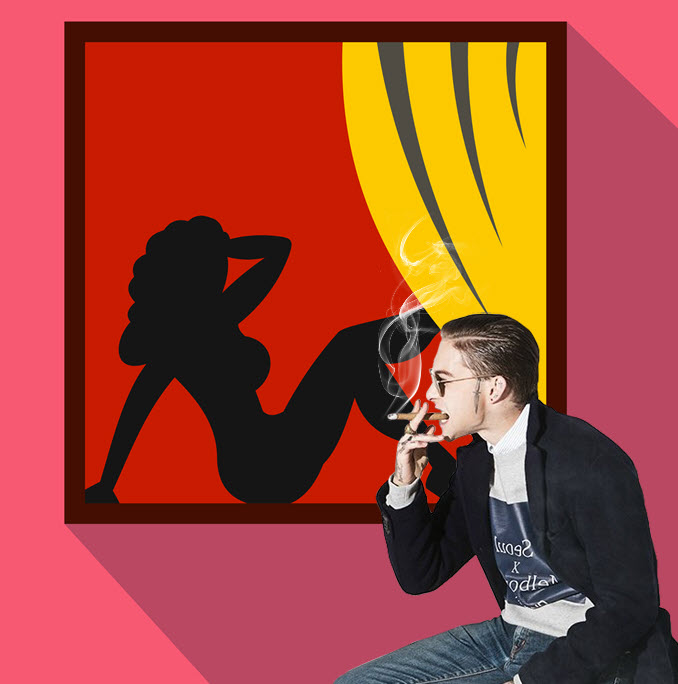
Everyone is rushing to legalize weed, but Amsterdam can’t get rid of it fast enough?
Amsterdam bans smoking weed in the red light district
The Red Light District of Amsterdam is a haven for tourists seeking relief from the rules and regulations of everyday life. However, residents of this vibrant neighborhood strive to tone down the wild vibe. The City Council recently announced that cannabis use would be banned on the streets of the Red Light District, citing the disturbing and desolate atmosphere that often reigns in the area at night. This new regulation is to come into force from mid-May.
The residents of the old town are suffering from the brunt of excessive tourism, alcohol and drug abuse in public spaces, according to the council on Thursday. This unfavorable environment also attracts illegal street vendors, rising crime rates and a general sense of insecurity. The situation worsens at night, when intoxicated individuals hang around for long periods, causing residents to have trouble sleeping. Ultimately, this makes the neighborhood uninhabitable and unsafe for locals.
The council added that introducing a ban on smoking cannabis on the streets would ease the hardship of local residents. In addition, they are exploring the possibility of banning soft drug take-out at certain times. If the harassment continues, the council will consider a possible ban on smoking on cafe terraces. As Reuters reports, the move is part of Amsterdam’s first mayor, Femke Halsema, to create a more welcoming neighborhood for locals.
Previous attempts to mitigate the impact of tourism
CNN reports that several efforts have been made in recent years to minimize the negative consequences of excessive tourism and the influx of problem tourists, and to change the image of the red-light district. For example, authorities have passed a law that prohibits guides from going through sex workers’ windows. Halsema has been involved in the redevelopment of the city’s red light district since she was appointed mayor of Amsterdam in 2018.
According to CNN’s report, in 2019 Halsema proposed four alternatives to ensure the welfare of sex workers, curb criminal activity and limit the impact of tourism in De Wallen, Amsterdam’s red-light district. The other options were hiding sex workers behind closed curtains to block street views, reducing the number of window-style rooms, moving brothels to other areas of Amsterdam, and setting up a “hotel” for sex workers.
Citing the mayor’s office statement, CNN reported that the sex workers in the red-light district had become a mere sightseeing spectacle for many tourists. However, this often leads to disorderly behavior and disregard for the dignity and profession of sex workers, which can be seen through the windows.
Apart from the recently announced smoking ban, the Amsterdam City Council has also revealed that one of the measures already decided is to force all catering and sex venues with a catering license to close their operations on Fridays and Saturdays by 02:00. This differs from the current closing times of 3 or 4am
The council stated that prostitution-related businesses would be allowed to work until 3am, while they are currently allowed to work until 6am. To promote better crowd management, new visitors are not allowed to enter the premises until after 1am. They are also considering closing down onto the terraces at 1am during the summer months as opposed to 2am in the current situation. The council also stated that the sale of alcohol by liquor stores, shops and cafeterias would remain banned “from 4pm on Thursday to Sunday”.
According to the CNN report, the De Wallen area, commonly known as the red light district, is the basis of about 10% to 15% of Amsterdam’s tourism industry.
Legalization of cannabis in Amsterdam
The legalization of cannabis in Amsterdam is a unique case where it is legal to possess and use small amounts of marijuana, but cultivation and distribution remain illegal. The Netherlands takes a pragmatic approach to drug policy, and Amsterdam is world-renowned for its lax cannabis laws.
In 1976, the Dutch government introduced a cannabis tolerance policy, allowing coffee shops to sell small amounts of marijuana to customers. This policy aimed to separate the soft drug market from the hard drug market and reduce the harms associated with drug use. Since then, Amsterdam has become a popular destination for cannabis tourism, attracting millions of visitors annually.
Under Dutch law, it is legal to possess up to 5 grams of cannabis for personal use. Coffee shops may sell up to 5 grams per customer per day and may store up to 500 grams of marijuana at any time. However, the sale of other drugs such as cocaine and ecstasy remains strictly prohibited.
Coffeeshops have to comply with strict regulations, e.g. B. No sale to minors, no advertising and no harassment of the public. They are also subject to regular official controls. However, despite these regulations, the presence of coffeeshops in Amsterdam has come under criticism from some quarters.
Critics argue that cannabis tourism contributes to social problems such as drug addiction, petty crime, and civil unrest. They also claim that tolerance policies have led to increased drug use among young people. Supporters of the policy argue that it has reduced the harms associated with drug use, such as the spread of diseases such as HIV, and created a revenue stream for the government.
In recent years, the Dutch government has moved towards a stricter approach to drug policy. In 2012, the government introduced a policy banning non-residents from buying cannabis from coffeeshops in the southern provinces of the Netherlands. This policy was later extended to other provinces, including Amsterdam. The government argued that the policy was necessary to reduce drug tourism and related problems.
Despite the political changes, cannabis remains a widely used drug in the Netherlands. The debate over drug policy and the legalization of cannabis continues, with arguments on both sides. For now, however, Amsterdam remains one of the few places where cannabis use is widely tolerated.
Diploma
Amsterdam’s city government has made the red-light district more livable for residents by imposing a smoking ban and reducing the opening hours of food and sex venues. The council’s decisions are part of a campaign being led by the city’s first woman mayor to address problems related to mass tourism and crime in the region. While the Red Light District remains a popular destination for visitors, these new regulations aim to make it more respectful and safe for everyone.
AMSTERDAM WEED SCENES, READ MORE…

IF AMSTERDAM BANS WEED, WHICH EUROPEAN CITY WILL BE THE NEW CANNABIS CAPITAL?

Post a comment: